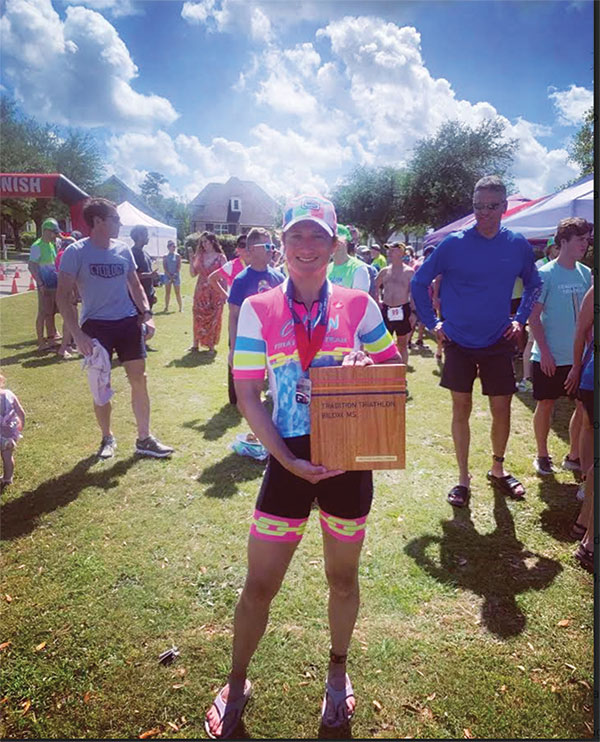Dr. Yekaterina Karpitskaya
How do doctors keep from getting sick? The simple answer is we don’t. Doctors and nurses get sick from time to time just like you. Ironically, we dedicate our lives to diagnosing and treating disease, mostly through listening and analyzing information from our patients; but sometimes, we fail to do that very thing for ourselves.
After 13-plus years of education, followed by a full-time practice — both requiring long hours in the operating room, days and nights of being on call and perceiving of any sign of being human as a weakness — we ask a lot from our bodies and minds. We often forget to thank them for continuously giving so we can care for others. Then one day, it can all be taken from us.
I always have been energetic and driven, burning the candle at both ends. On top of my demanding jobs as an orthopaedic surgeon and mom of two, I train for and compete in Ironman triathlons in pursuit of the elusive Ironman World Championship in Kona, Hawaii.
In the spring of 2019, as I was training for Ironman Texas, I became ill. We had just returned from a triathlon training camp, and I was busy rushing around the house, unpacking and cleaning. Suddenly, I felt overwhelming fatigue to the point of having to lie down immediately. The next morning, I had a difficult time getting out of bed. Everything hurt. I felt stiff and had a strange rash on my legs. I chalked it up to overtraining or a possible viral infection, and loaded up on oral steroids — hoping the symptoms would resolve before the race. I drove to Texas, still hoping that I’d wake up my normal self, but I only got worse and had to pull out of the competition. Thus began the two-year betrayal by my body and the battle I’d find wage in search of a diagnosis and cure.
After a few months of self-medicating, I decided I should stick to fixing bones and seek help from Dr. Nicole Walton, a local rheumatologist. She suspected an autoimmune process and started me on some medicine. I felt somewhat better and pulled myself through Ironman Florida in November 2019, securing a spot in Kona; however, the tremendous stress of it all caused a bad flareup, and, feeling discouraged, I stopped the medicine.
As I frantically tried to determine what was happening to me, I sought a second opinion, then a third at the Mayo Clinic in Rochester. There, an elderly rheumatologist told me I was “just getting old” and needed to slow down. I did not give up, and as traditional medicine did not seem to give me answers, I educated myself on alternative medicine, naturopathic medicine, meditation, bio-hacking and Lyme Disease. I even hired a health coach, changed my diet and took hundreds of supplements.
After two years, I was beginning to accept that this might be my new normal, and I was truly “just getting old.”
By fall of 2021, my condition was so bad that I could barely walk around my neighborhood or get through a workday. I reached out to Dr. Walton again, who always has been there for me and always has been sympathetic and caring. She listened to my ramblings and hugged me as I cried in her office, frustrated with my circumstances. We rechecked labs and finally had a diagnosis: lupus, an inflammatory disease caused when the immune system attacks its own tissues. She started me on new medication, and four months later, the symptoms gradually abated and became manageable. I cautiously started training again and, even more cautiously, racing triathlons. Today, three years to the day that this ordeal began, I finished Traditions Triathlon with a personal best.
This experience has been very humbling, allowing me to experience what it’s like to be on the other side of patient care. The journey has shown me that oftentimes, female patients in particular are not heard and dismissed as being menopausal or emotional. Their symptoms are minimized and mislabeled.
Now, I am much more aware of the association between musculoskeletal pain, nebulous systemic symptoms and autoimmune disease. I have learned how to better treat the patient as a whole, rather than just a body part, and how to think outside the box. I will be forever grateful to the physicians who helped me through this process (you know who you are).
Dr. Yekaterina Karpitskaya is an orthopaedic surgeon with Bienville Orthopaedic Specialists. Reach her at (228) 447-4403.


